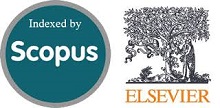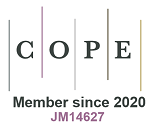The Effect of Transformational Leadership on Employees' Attitude by Considering the Mediating Role of Psychological Empowerment (Case Study: Municipality of Karaj, Region 1)
Abstract
Keywords
References
O. Jahanshahi, H. Khojasteh,"the consideration of the relation between job attitudes and empowerment and presentation of a conceptual model for empowering journalists, Tehran's national newspapers", Third Media Management International Conference, Tehran, Rooydad Pardazesh Mandegar Co.(2016)
X. Mei Lan, "The Mediating Role of Psychological Empowerment between Transformational Leadership and Employee Work Attitudes", Procedia - Social and Behavioral Sciences, (2015):184 – 191, https://doi.org/10.1016/j.sbspro.2015.01.353
S. Braun, " Transformational leadership, job satisfaction, and team performance: A multilevel mediation model of trust", The Leadership Quarterly, Volume 24, Issue 1, February (2013), Pages 270–283, https://doi.org/10.1016/j.leaqua.2012.11.006
LA. Poirier, AJ. Morin, "On the merits of coherent leadership empowerment behaviors: A mixture regression approach". Journal of Vocational Behavior. (2017):66-75. https://doi.org/10.1016/j.jvb.2017.08.003
N. Hill, "The interactive effect of leader–member exchange and electronic communication on employee psychological empowerment and work outcomes", The Leadership Quarterly, Volume 25, Issue 4, (2014): 772-783. https://doi.org/10.1016/j.leaqua.2014.04.006
S. H. Han, G. Seo, "Transformational leadership and knowledge sharing: Mediating roles of employee’s empowerment, commitment, and citizenship behaviors", Journal of Workplace Learning, 28(3), (2016):130-149, https://doi.org/10.1108/JWL-09-2015-0066
K. Kasemsap, "Developing a unified framework and a causal model of transformational leadership, empowerment, innovation support, and organizational innovation". In Organizational Culture and Behavior: Concepts, Methodologies, Tools, and Applications, (2017): 381-406. IGI Global. https://doi.org/10.4018/978-1-5225-1913-3.ch019
H. Tse, "Transformational leadership and job performance: A social identity perspective", Journal of Business Research, Volume 67, Issue 1, January, (2014): 2827–2835, https://doi.org/10.1016/j.jbusres.2012.07.018
HJ. Wang, E. Demerouti, "Transformational leadership, adaptability, and job crafting: The moderating role of organizational identification", Journal of Vocational Behavior. (2017):185-95. https://doi.org/10.1016/j.jvb.2017.03.009
JI. Wagner, G. Cummings, "The relationship between structural empowerment and psychological empowerment for nurses: a systematic review", Journal of nursing management, (2010). May 1;18(4):448-62. https://doi.org/10.1111/j.1365-2834.2010.01088.x.
E. Rombouts, B. Maes, "Attitude and key word signing usage in support staff", Research in developmental disabilities, (2016), Aug 31;55:77-87. https://doi.org/10.1016/j.ridd.2016.03.016.
DOI: 10.28991/ijse-01124
Refbacks
- There are currently no refbacks.
Copyright (c) 2018 Mahsa Panahbehagh, Mehrdad Hosseini Shakib






